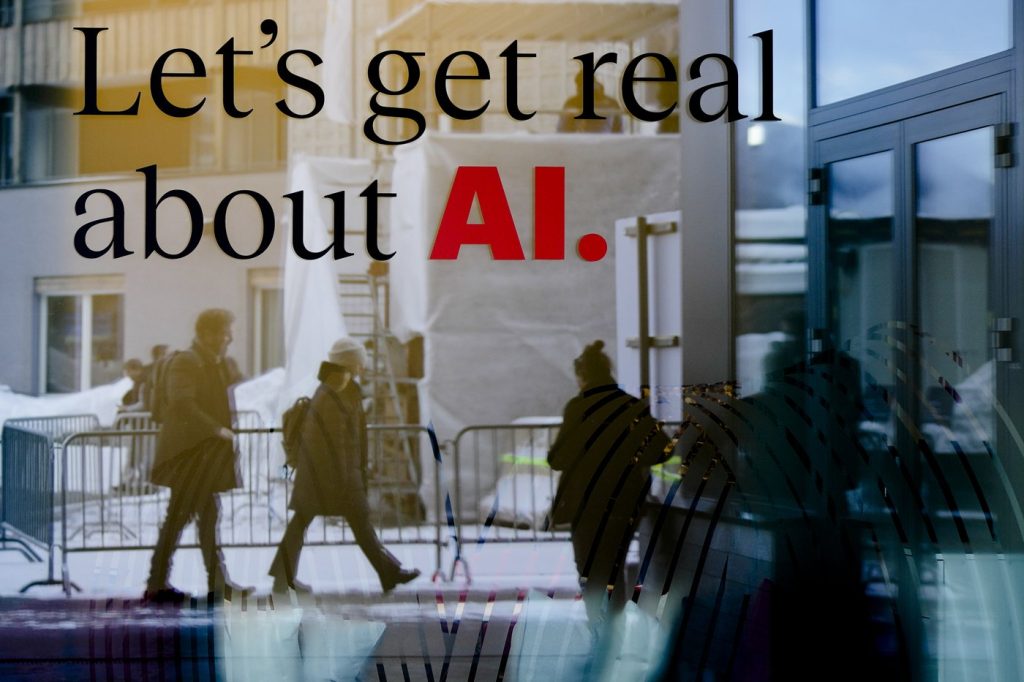PARIS (AP) – The geopolitics of artificial intelligence will take center stage at the upcoming summit in France, where world leaders, executives, and experts are set to discuss and formulate pledges for guiding the development of AI technology. Scheduled to start on February 10, the Paris AI Action Summit comes at a critical moment, especially against the backdrop of China’s DeepSeek chatbot, which has begun to disrupt the industry with its competitive pricing and capabilities.
U.S. Vice President JD Vance is making his first international trip since taking office to attend the summit, while Chinese President Xi Jinping is sending a special envoy, highlighting the significance of this event. The summit is co-hosted by French President Emmanuel Macron and Indian Prime Minister Narendra Modi, aiming to harness the potential of AI for the benefit of all while addressing its associated risks.
The two-day summit will see participation from heads of state and government officials, tech executives, and researchers, with prominent attendees including European Commission President Ursula von der Leyen, German Chancellor Olaf Scholz, Canadian Prime Minister Justin Trudeau, OpenAI CEO Sam Altman, Microsoft President Brad Smith, and Google CEO Sundar Pichai. While Tesla CEO Elon Musk and DeepSeek founder Liang Wenfeng have been invited, their attendance remains uncertain.
Panel discussions and workshops will take place at the Grand Palais, culminating in a dinner at the Elysee presidential palace, where leaders and CEOs are expected to deliver speeches during the closing session on Tuesday. The stakes are high as generative AI technology continues to evolve rapidly, affecting multiple aspects of daily life by producing high-quality text, images, and video, as well as executing complex tasks.
The previous summit in the U.K. resulted in a non-binding pledge from 28 nations to address AI risks, followed by a meeting in South Korea that aimed to establish a network of public AI safety institutes. AI safety remains a priority at the Paris summit, with an expert group set to report on the extreme dangers posed by general-purpose AI technologies.
This time, the summit will expand the discussion to include a greater number of countries and a broader range of AI-related topics. However, it is important to note that no binding regulations will come out of this summit. President Macron emphasized the summit's objective to establish specific rules to avoid uncontrolled development of AI, referring to the need to prevent a "Wild West" scenario.
One of the key goals involves obtaining a joint political declaration that advocates for ethical, democratic, and environmentally sustainable AI practices. Yet, the likelihood of reaching a consensus involving the U.S. remains uncertain. Another ambitious aim is to secure a public-interest partnership for AI, with France looking to raise €2.5 billion ($2.6 billion) to fund this initiative, which would collaborate with governments, businesses, and philanthropic organizations to provide open-source access to essential AI tools.
Former U.S. President Donald Trump has professed his ambition to make the U.S. the "world capital of artificial intelligence" by utilizing domestic resources. However, he also moved to withdraw the U.S. from the Paris climate agreement and rescinded Biden's executive order on AI regulations. Trump's proposed new AI policy seeks to enhance America's global leadership in the sector by reducing regulatory barriers.
The evolving U.S. stance could hinder a joint communiqué emerging from the Paris summit, as Trump's administration is reportedly against global governance initiatives. Furthermore, tension may arise involving the EU, which has consistently challenged U.S.-based tech giants through antitrust penalties and strict regulatory measures. Recent regulations regarding AI by the European Union have faced opposition from major tech companies, who find the guidelines impractical.
China, meanwhile, is seeking to assert itself on the global AI governance stage. Xi Jinping's decision to send Vice Premier Zhang Guoqing, as a special representative, indicates China's intent to strengthen its role amidst the U.S.'s withdrawal from participation. The recent debut of DeepSeek exemplifies China's growing capabilities in AI, stoking competition in the technology arena. The anticipation surrounding DeepSeek represents a significant competitive challenge for U.S. tech firms and escalates the existing geopolitical rivalry between Washington and Beijing.
As the world gears up for the discussions in Paris, the multifaceted implications of AI development, governance, and collaboration will be crucial in shaping the future landscape of technology. With pressures mounting on both sides of the Atlantic, the outcomes of this summit could have long-lasting effects on international relations and technology development strategies.










